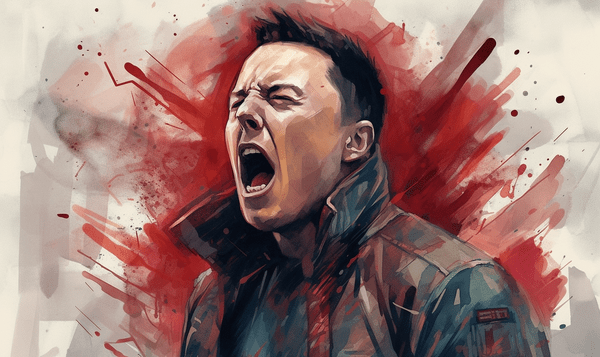In a brightly lit room of power and privilege, the air is thick with tension. Elon Musk, the once-celebrated tech mogul and current owner of X, formerly known as Twitter, stands defiantly.
It’s a Wednesday at the New York Times DealBook event, and the audience, a blend of the elite and the curious, leans in. Musk’s words slice through the atmosphere, unapologetic and raw: “Go f*ck yourself.”
This outburst isn’t just a momentary lapse. It’s the culmination of weeks of escalating conflict between Musk and a cohort of major advertisers who’ve withdrawn from X in response to what many perceive as an antisemitic endorsement by Musk.
Companies like Apple, Walt Disney, and IBM have pulled back, costing X an estimated $75 million. At the heart of this exodus lies a controversial post by Musk, responding affirmatively to a user’s antisemitic rant.
Musk’s stance is unyielding. He accuses these corporations of blackmail, of using their financial clout as a weapon against him. “Don’t advertise,” he challenges, his voice a mix of anger and disdain. This isn’t just about advertising dollars; it’s a battle for the soul of X and, by extension, Musk’s vision of free speech.
To understand this moment is to delve into Musk’s psyche. Here is a man who’s revolutionized industries, who’s reached for the stars with SpaceX, electrified the roads with Tesla, and now finds himself at the helm of a social media giant teetering on the brink. His response to the boycott is both a war cry and a warning: X could die, and if it does, he vows to document the death throes, to lay the blame squarely at the feet of those who withdrew their support.
But beneath the bravado lies complexity. Musk’s apology for his post, albeit overshadowed by his rage, hints at self-awareness, at a recognition of the loaded gun he handed his detractors. It’s a rare glimpse into the vulnerability of a man who’s often seemed invincible.
The scene at the DealBook Summit is telling. Musk, in his element yet isolated, rejects the notion of an apology tour to Israel. His confrontation with the audience, his direct challenge to Disney CEO Bob Iger, underscores his belief in his own narrative. He’s a man who refuses to “tap dance” to public opinion, yet his actions speak of a deeper turmoil.
This turmoil isn’t just corporate. It seeps into the personal, with reports of increased isolation and erratic behavior, possibly exacerbated by his use of ketamine. Former SEC Chair Jay Clayton’s words resonate here, acknowledging Musk’s vision but not absolving him of his transgressions.
In this Shakespearean drama, Musk’s “go f-ck yourself” echoes not just in the halls of power but in the public consciousness. It’s a moment of raw authenticity from a figure who’s become as much an enigma as a visionary. This is Elon Musk at a crossroads, defiant yet vulnerable, powerful yet perilously close to losing everything he’s built.
As X teeters on the edge, the world watches. Will this be Musk’s ultimate downfall, or will he, like a modern-day Phoenix, rise from the ashes of controversy?
Only time will tell.
But for now, in that room of hushed whispers and unspoken judgments, Elon Musk stands alone, a man against the world.




